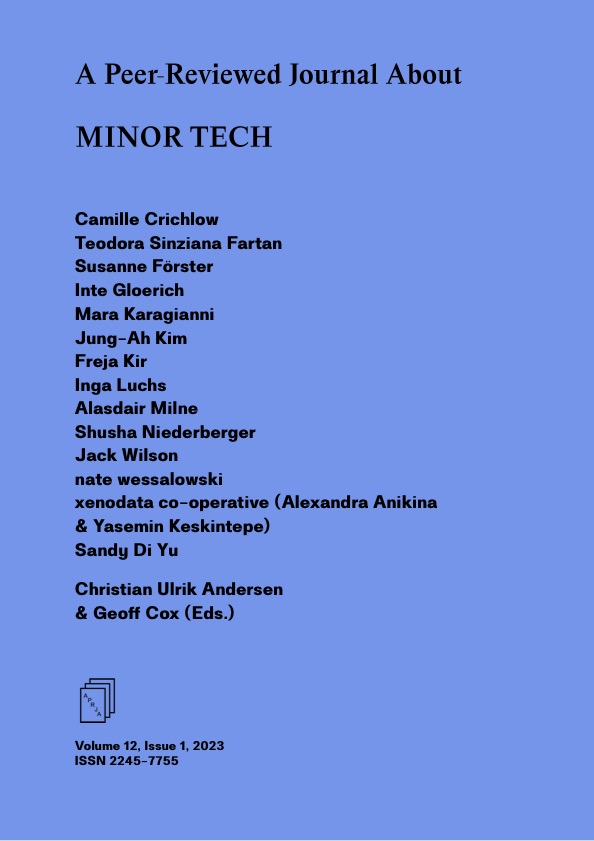Calling the User
Interpellation and Narration of User Subjectivity in Mastodon and Trans*Feminist Servers
DOI:
https://doi.org/10.7146/aprja.v12i1.140449Keywords:
subjectivity, data, infrastructure, practice, Feminist Servers, Trans*Feminist Servers, platforms, social media, Twitter, Mastodon, feminism, user, relational technologyAbstract
In recent years, a large body of work has analyzed the cultural and social ramifications of data-driven digital environments that currently structure digital practice. However, the position of the user has scarcely been developed in this field.
In this paper I discuss how user subject positions are invoked by digital infrastructures as an alternative to big technology platforms. With subject positions I mean a shared and often unarticulated understanding of what kind of technological practice is meant when we talk about users: user as a cultural form. I start with the analysis of a crisis in user subjectivity as it manifested in the migratory waves from Twitter to Mastodon at the end of 2022, after Elon Musk bought Twitter. Like Twitter, Mastodon is a microblogging service, but it operates as a network of connected servers run by nonprofit organizations and communities. I argue that Mastodon—by way of its infrastructural organization around servers and communities—invokes a different subject position of the user than the self-contained autonomous liberal subject, one that is based on a relationship with a community. In a second case study, I discuss how the artistic activist practices of Trans*Feminist Servers create a territory to rethink relations to technology itself, most prominently through raising questions of servitude: what does it mean to serve and to be served? I argue that through this, Trans*Feminist Servers are able to reformulate use as part of relations of care and maintenance and implement them in their technological practice. As I conclude, both Mastodon and Trans*Feminist Servers project a user exceeding the neoliberal subject. While Mastodon does so by proposing a subject position related to a community first, Trans*feminist Servers go a step further and moreover open use as a practice beyond consumption, thus operate on relations to infrastructure itself.
Downloads
Published
Issue
Section
License
Copyright (c) 2023 Shusha Niederberger

This work is licensed under a Creative Commons Attribution-NonCommercial-ShareAlike 4.0 International License.
Copyrights are held by the individual authors of articles.
Unless stated otherwise, all articles are published under the CC license: ‘Attribution-NonCommercial-ShareAlike’.
The journal is free of charge for readers.
APRJA does not charge authors for Article Processing Costs (APC)


